How quaint Cannes became the host of the world’s most glamorous film festival
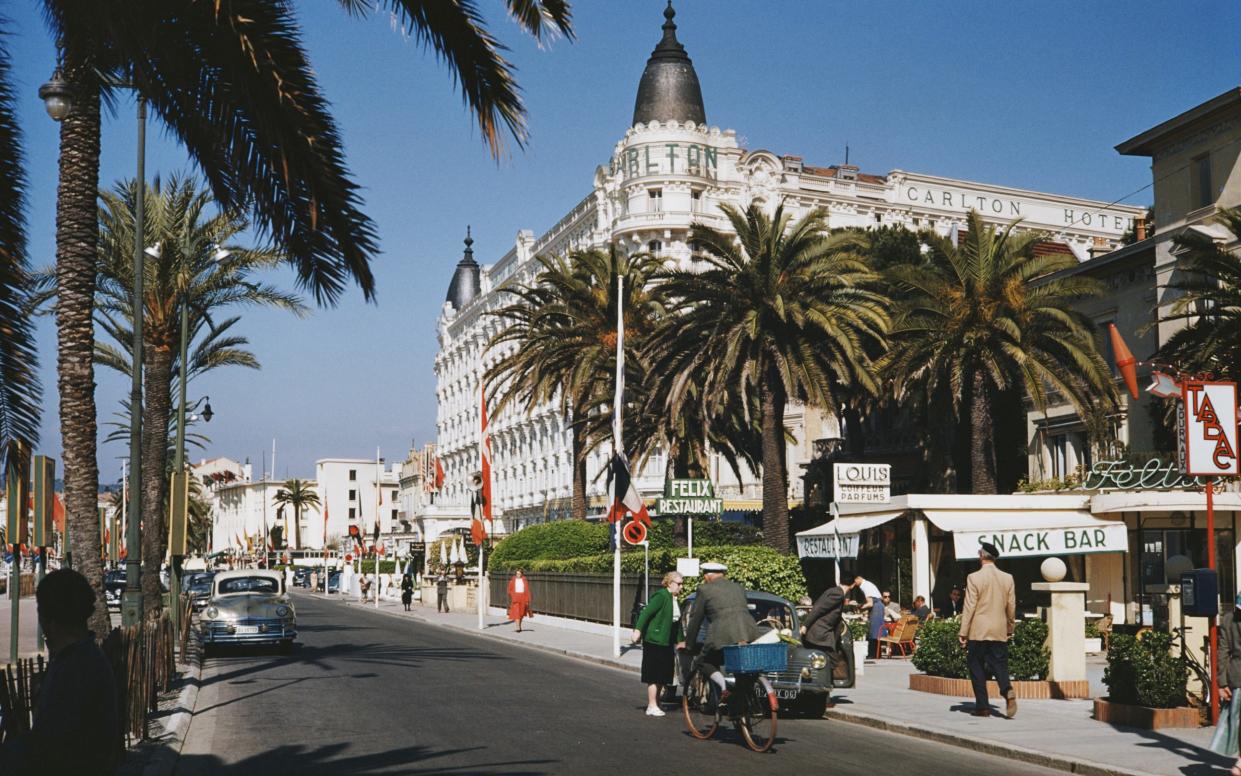
Cannes is what France has instead of Lancashire’s Lytham St Annes. Both are modest seaside towns, slightly classier than the neighbours. Both have pleasant seafronts, long histories of sea-bathing and lots of retired people.
The key difference is that while Lytham St Annes has potted shrimps, Cannes has the world’s foremost cinema festival. Depending on whom you listen to, it’s either the planet’s second or third media event (after the Olympics and, perhaps, the football World Cup).
This year’s 77th version kicks off in the Riviera resort’s Palais des Festivals on May 14. Camille Cottin (of Call My Agent!) hosts the opening ceremony, Greta Gerwig (Barbie director) heads the main jury, which awards the Palme-d’Or prize.
Cannes didn’t arrive as film festival capital by accident. It spent generations getting there.
In truth, Cannes-as-Riviera-resort was trailblazed by a British aristo – Lord Brougham, ex-Lord Chancellor.
He arrived in 1834 in what was then a fishing port distinguished by poverty. He liked the place, had a classical-looking villa built on a road out of town and named it Villa Eléonore-Louise, after his daughter who died during its construction. You can still see the villa – ochre yellow, pillars, now faded into flats – by peering through the private development at 24 Avenue Dr Picaud.
Brougham established, the great, good and borderline bonkers followed, fashioning Cannes for the fashionable from across northern Europe, Russia and the United States. The old fishing port was swamped with sumptuousness, shimmying into the world spotlight as a centre of elegance, wealth and debauchery.
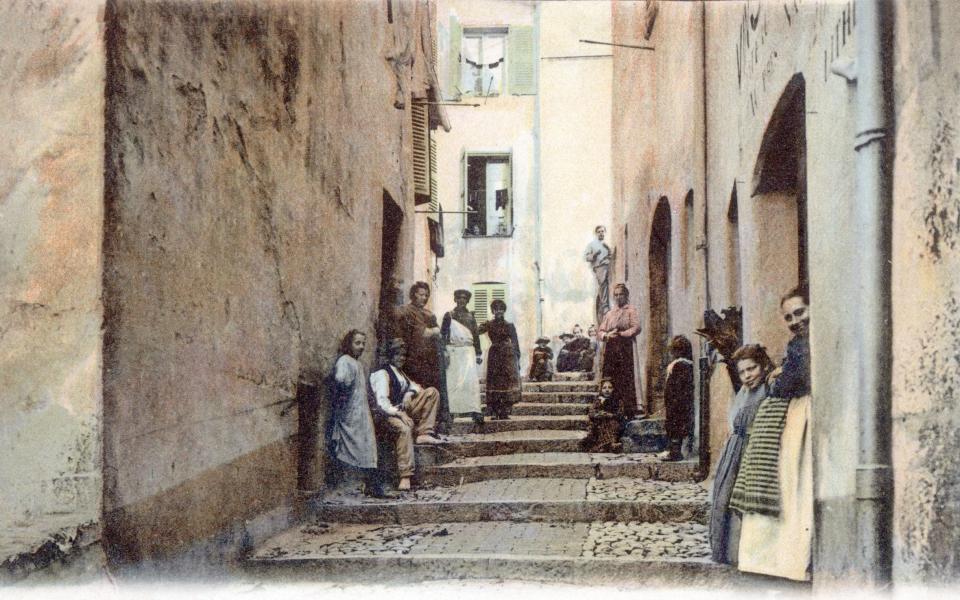
For all these reasons, Cannes was an obvious candidate when, in 1938, the French determined they needed a proper film event. They’d had enough of the Venice International Film Festival, the world’s oldest, which, under pressure from Hitler and Mussolini, had awarded its 1938 prize to Leni Riefenstahl’s Olympia, a well-muscled paean of praise to fascism.
Thus, the rival French event was scheduled for kick-off on September 1, 1939. Great films were programmed – The Wizard Of Oz, Korda’s Four Feathers, Cecil B. DeMille’s Union Pacific – and movie stars like Tyrone Power, Gary Cooper and Mae West flew in to float about in yachts in the bay. Then Germany invaded Poland. France (and Britain) declared war on Germany two days later, on September 3. Cannes was cancelled.
The film festival frolics were forgotten until 1946. The re-launch involved fireworks, floats, doves, a beauty competition, and films from 21 countries – 11 of which tied for first place. These included David Lean’s Brief Encounter, Billy Wilder’s Lost Weekend, Rossellini’s Rome, Open City and, in an all-shall-have-prizes initiative, Fridrikh Ermler’s Soviet war movie, The Turning Point. In the early years, the emphasis was as much on celebrating cinema as on competition. Almost everyone won something.
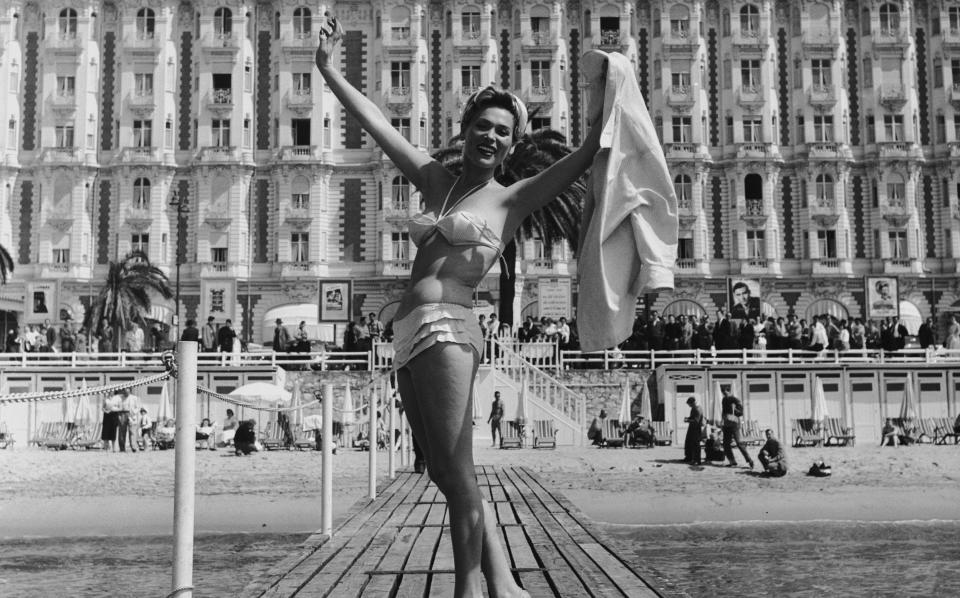
In 1955, the Palme d’Or top award replaced the myriad previous prizes. Cannes continued on its roll, bolstered by essential controversy. The 1968 festival fell victim to the May riots in Paris. Film-makers Truffaut, Godard and Louis Malle felt Cannes should show solidarity with protestors, so the festivities were abandoned.
Marco Ferreri’s 1973 La Grande Bouffe – featuring old men eating themselves to death – had the festival audience throwing up. It still won the Critics’ Prize. Novelist Françoise Sagan – festival president in 1979 – caused havoc when she claimed the jury had been pressured into awarding the Palme d’Or to Apocalypse Now. In revenge, the festival organisers decided not to pay her expenses.
Four years later, French actress Isabelle Adjani offended many by refusing to play for photo shoots – whence her consequent reputation among snappers as a diva.
Then there’s been all the booing. Some films, even winners, are less appreciated than others. The 1987 triumph of Maurice Pialat’s Under The Sun of Satan was greeted by a volley of catcalls. The French director didn’t flinch. “You don’t like me,” he cried from the stage. “And I can tell you that I don’t like you, either.” Then he embraced Catherine Deneuve. A few years on, Quentin Tarantino flipped the finger at an audience member who yelled “what c**p!” when Pulp Fiction took gold.
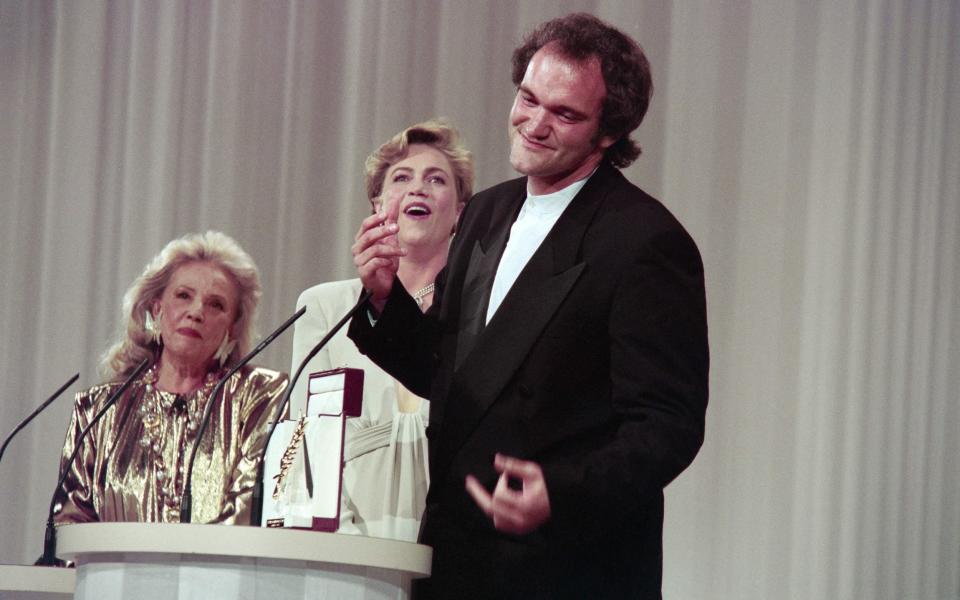
In 2011, Lars Von Trier ruffled feathers by apparently coming out in favour of Hitler. A few years earlier, movies featuring what some considered overlong scenes of rape also caused a hue and cry such as Gaspar Noé’s Irréversible.
But Cannes’ momentum is unstoppable; movie-world scandal fuels it nicely. This year, there will be new movies by David Cronenberg, Francis Ford Coppola, Paul Schrader and, on opening night, Quentin Dupieux with Le Deuxième Acte. Omar Sy, of Lupin fame, and Eva Green will join Greta Gerwig on the main jury, Kevin Costner is flying in to launch his Horizon, An American Saga magnum opus and George Lucas will be in Cannes to receive a Palme d’Or d’Honneur for his entire oeuvre. There will be others, yachts-full of them.
La Croisette promenade, and the palace hotels lining it, will be buzzing. All of which means that this is a really good time not to be there. Hotel prices are in orbit, you’ll pay over the odds for a Perrier, you’re not going to get into any parties hosted by Sharon Stone, and security men dwarfing dinosaurs are ubiquitous. It’s far from cheerful or relaxing.
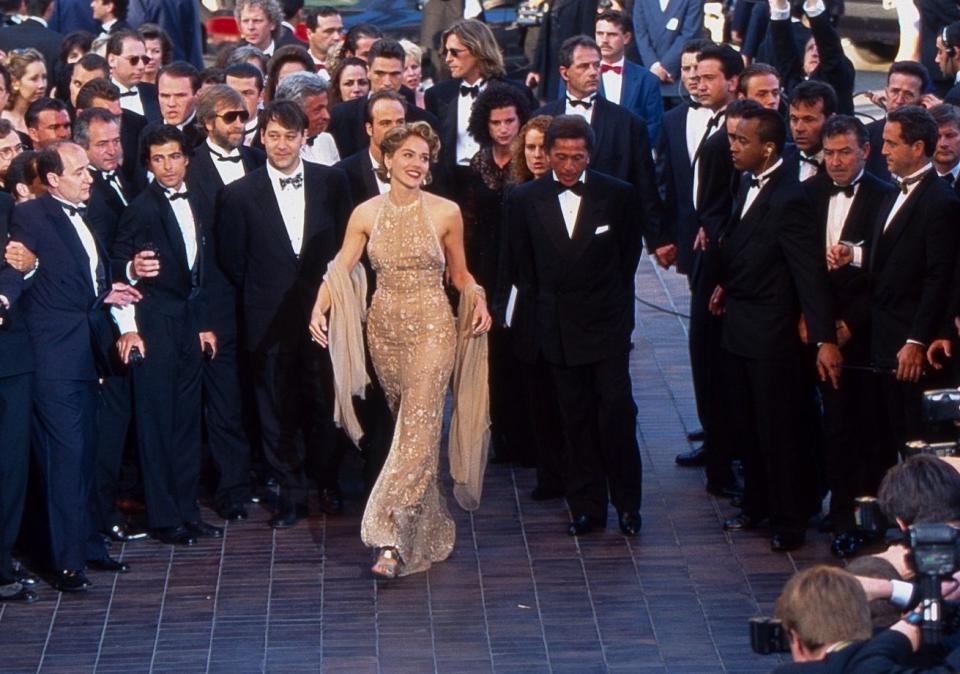
If indeed you do go at another time, you’ll soon note one thing: that Cannes’ great achievement is to have spun out the glamour of the festival across the whole year. Of course, the promenade and bay are glorious and there are sandy beaches, but such things aren’t unknown elsewhere around the Mediterranean.
What distinguishes Cannes is the sparkling, movie-driven veneer with which it coats itself. There are movie-star suites and cocktails, wall-filling movie-star murals, movie-star handprints by the Palais des Festivals and evocations of movies everywhere. You’d think that Brad, Matt and George and Jodie and Cate Blanchett were hanging out here all the time. Spoiler alert: they aren’t.
Beneath the surface brilliance – the fizz, foam and froth – there’s not much going on. “Weightless” is the word. And Cannes is so much the better for it. Weightlessness is a virtue in a world with quite enough weighty places. You may stroll La Croisette. It’s glorious.
You’ll walk up Le Suquet hill, where Cannes crammed in, tight and steep, when fishing was its thing. At the top, the Muséé des Explorations du Monde skips among world cultures, the only museum you need to see, and only if it’s raining.
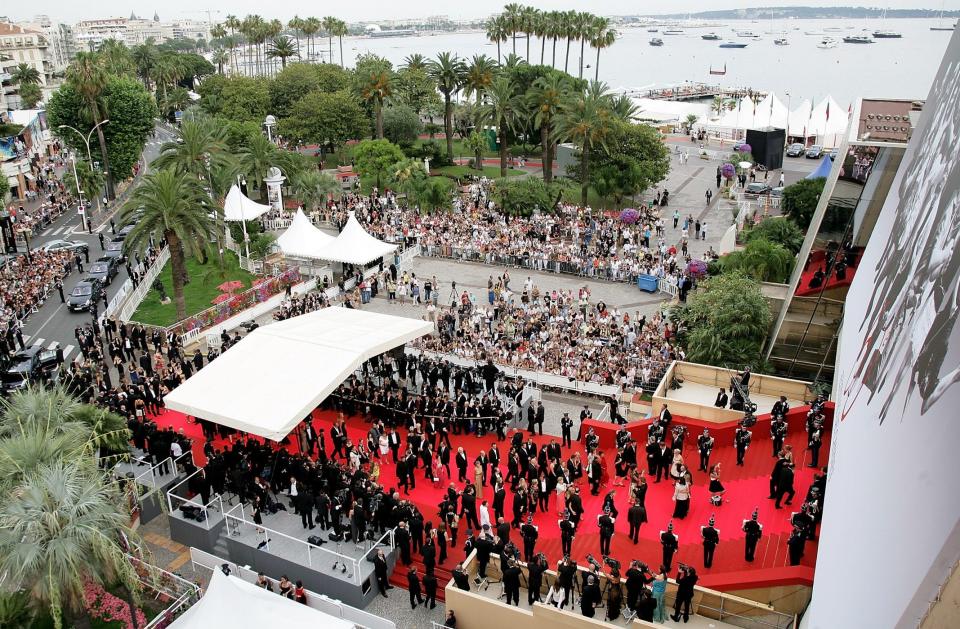
You might trip out to one of the islands – favour Sainte-Marguerite over Saint-Honorat; the Man In The Iron Mask was banged up in the Fort Royal there – and your duty’s done. You’re free to do what you really always wanted: shop, eat, drink and go to the beach, suspend disbelief and buy into the illusion that you’re as groovy as can be.
I’ve tried the same in Lytham St Annes. It almost works.
Plan the perfect break in Cannes with our expert guide.
How to discover the French Riviera without enduring the crowds of Cannes
Springtime on the Riviera is the finest of all seasons. I wouldn’t waste it tangling with the frenzied glitz of the festival.
Instead, try the big city seaside buzz of Nice. The Riviera capital thrives and throbs whether visitors show up or not. Book The Deck Hotel (+33 492 144020; May doubles from £96).
Prefer the calm? The peaceful? The slightly more modest? Head for Agay, near St Raphaël, which slots in where red rocks of the Esterel mountain drop to one of France’s loveliest bays. The Relais d’Agay is the place to stay (+33 494 827820; May doubles from £55).
Alternatively, Menton comes in between the two – calm enough for the cultured, but with just enough liveliness, by day and by night, which the cultured also need. The seafront Hotel Riva costs from £104 in May (+33 492 109210).
Whichever you choose, fly to Nice from all London airports, and many regional airports with, variously, British Airways, Ryanair and easyJet. Prices differ widely, depending on airline, departure airport and date of flight.
Plan the perfect holiday on the French Riviera with our expert guide.

